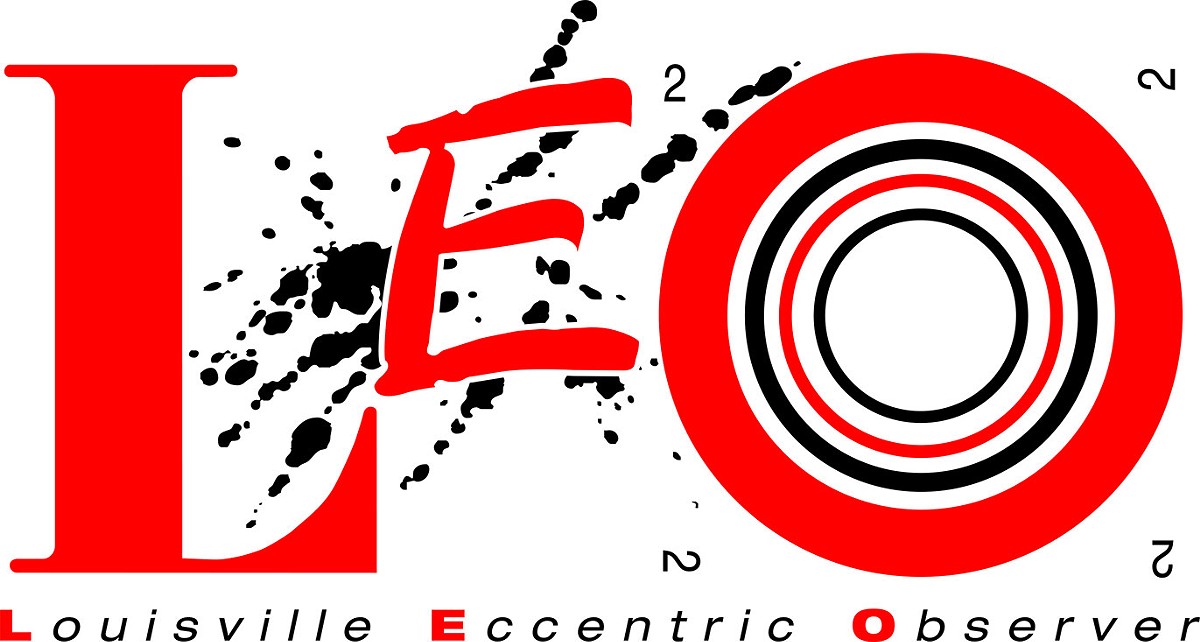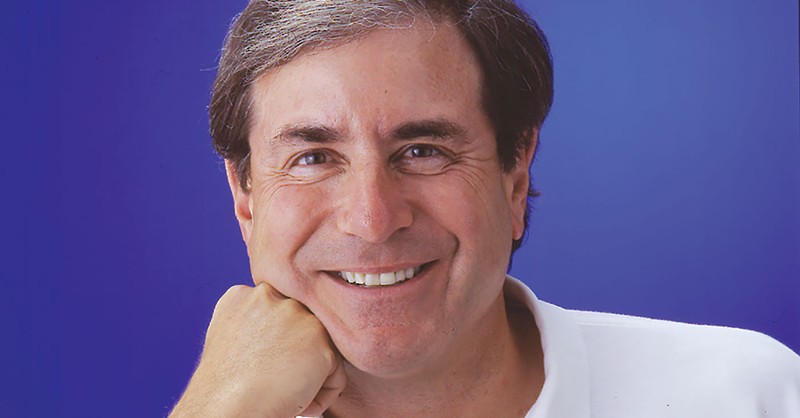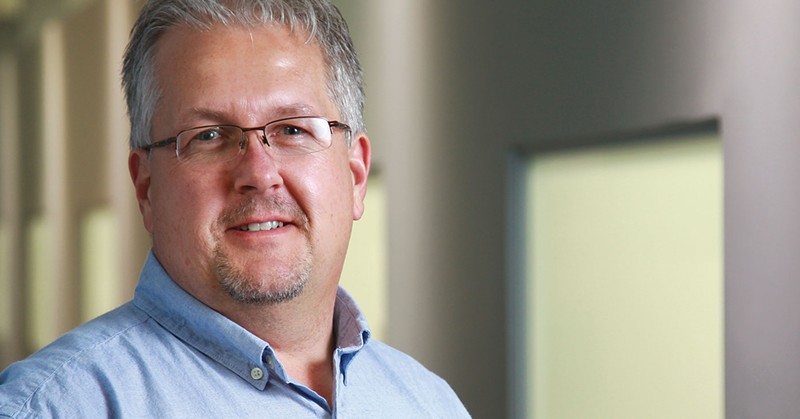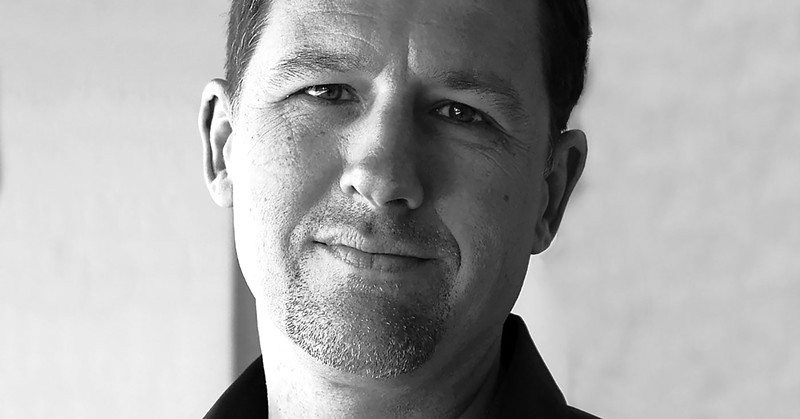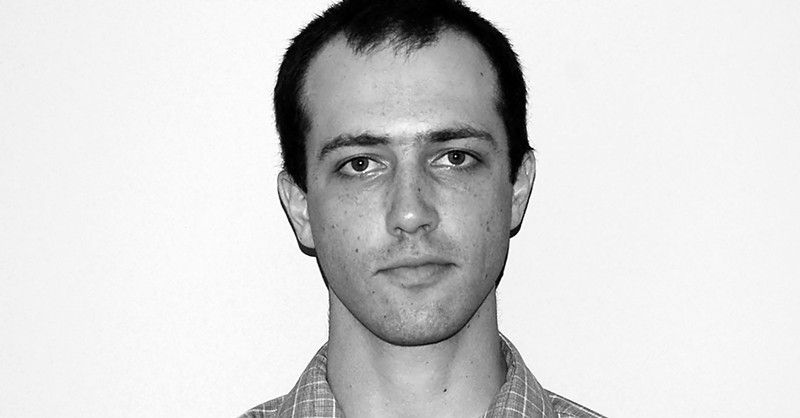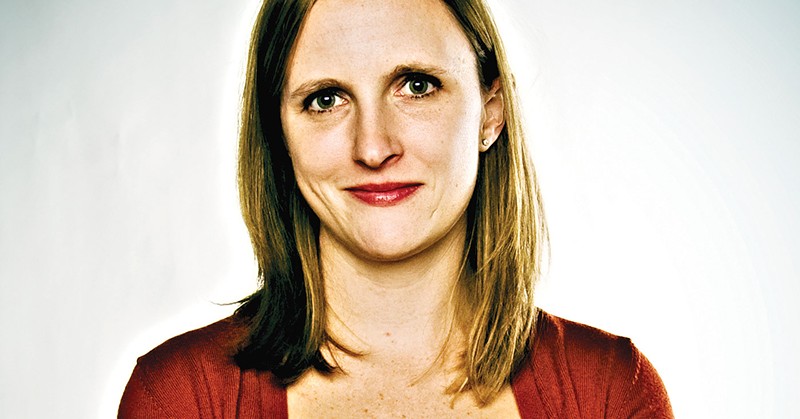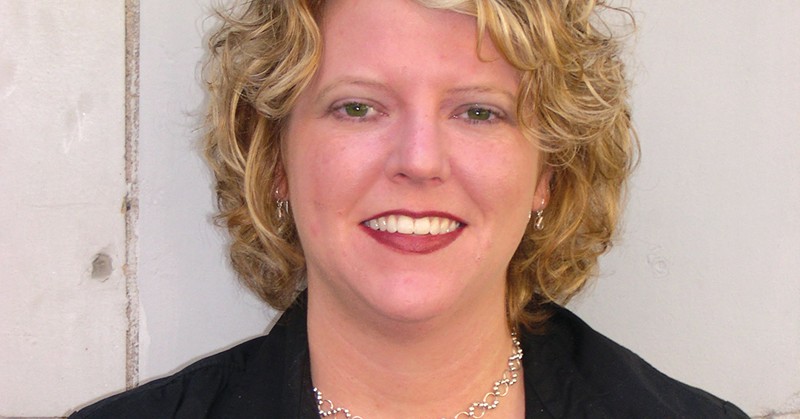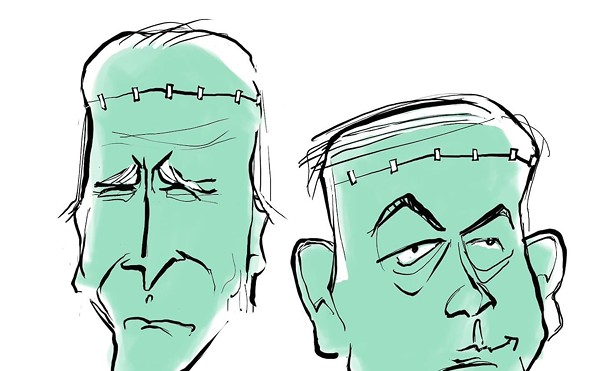John Yarmuth
LEO, 1990–2006
What do we really need to say about John Yarmuth? He’s the founder of LEO Weekly, congressional representative for what’s known as “the Louisville district” and an all- around cool guy. So, without further ado, the original LEO himself.
LEO: So I know you started out as a congressional aid. What led you into the world of journalism?
John Yarmuth: When I was a staffer, back when staffers could take advantage of just incredible perks, I was asked to go to the Super Bowl in Los Angeles by a lobbyist. It was the Redskins vs. the Dolphins. He was a Redskins’ fan. I wasn’t a Redskins fan, but I took this incredible trip. We took first class out there, went to the game, and I’m sitting on this flight back saying to myself how can I do this for a living? And I came up with this idea to create a Sunday magazine supplement to a newspaper like Parade magazine that would have been a national sports Sunday supplement. [...] I even sold my father on funding it, which was not an easy sell because he was tough, but I had developed a really solid business plan and I came back to Louisville and we were going do it, but my father got sick with brain cancer and he died. After my father died, I had no idea what I wanted to do. I was still intrigued about publishing, but I wasn’t sure that’s what I wanted to do. So I decided to go away on a golf trip by myself in North Carolina. And I played for several days, and every day when I paired up with somebody, they would ask me what I do and I would just try different stuff out and make stuff up to see which one felt good. And one of them was I publish a city magazine, and I thought, ‘Yeah, that one feels good.’
LEO: So what took you from a sports-centric supplement to a more outspoken, sometimes controversial weekly?
JY: Back then, you had this city that was kind of run by all of these old time Louisville families and big businesses. There wasn’t nearly the diversity or the openness or the sense in the public that they had any power that you have now. It was still a much more conservative place, but there was always a market for this, it was just a much smaller market. The LGBT community was very insignificant at that point, and if you wrote about gay rights or anything like that, you could piss a lot of people off.
LEO: What story during your time with the LEO do you think was most impactful?
JY: The story we did on Dillard’s when it was first coming to town. At the time, around ’95, it was a big deal because it was the first major retailer to come to Louisville. Of course, Dillard’s is a much different company now, and I’d like to think we had something to do with the change. But the week they were coming here, we did a story on Dillard’s deplorable civil rights record. And it was a really intense story to edit because of potential vulnerabilities. And we had never done anything like that before; we had just done opinion. We really hadn’t done much journalism or reporting, but I was very proud of that one. Now the stories that people remember, or the ones I hear about the most, are the columns I wrote about [Aaron Yarmuth] every Father’s Day. And I am working on putting all of them in a book. I just have to get off my ass and publish them.
LEO: Which of your Father’s Day columns do you like the most?
JY: There was one column I wrote about [Aaron Yarmuth] going away to college for the first time. And that’s the one that people still say ‘I saved that,’ ‘I still have that hanging on my refrigerator’ or ‘I’m saving that because I want to give that to my daughter when she goes away to college.’ So that one definitely had the most lasting impact. Because it’s a very human thing, and people respond to those more than any other. I can write the most brilliant political dialogue ever and no one cares, but write something about your son, and everyone can connect to it.
LEO: What do you think about the state of journalism now as opposed to when you started out publishing?
JY: I’m very worried about it. There is still some good journalism being done but, particularly in TV journalism, it’s just pathetic. It’s really sad, particularly when you’re in my job and you’re dealing with really complicated issues. Virtually everything you deal with on the federal level is complicated, much too complicated for TV to ever deal with. You can’t talk about healthcare in 90 seconds, and that’s even if you get 90 seconds, which is long. I mean, 40 years ago the average soundbite in television was 40 seconds, today it’s like 9.5. So for us to be able to communicate anything within seconds is impossible.
LEO: So do you have any favorite vocal opponents of LEO?
JY: Well, at the time there was a conservative activist named Frank Simon. Frank Simon didn’t appreciate LEO or my positions, and he was a horrible homophobe. So we were often battling verbally. Since that time, in terms of who is our royal opposition, I would have to say Mitch [McConnell]. [...] I consider part of my job educational, and I hope that isn’t taken in a pretentious way, but I try to help my constituents understand complex issues, Mitch doesn’t. Mitch tries to spin them a certain way, and I take umbrage with that.
LEO: Has Mitch McConnell ever said anything to you about LEO’s comments on him?
JY: The only time that he has ever complained to me about something I said about him was actually a bizarre situation. Louisville Magazine was doing a profile of him, and they asked me about him and I said, ‘Mitch is the Tiger Woods of politics, in that, ever since he was a little boy, he gets up every morning and all he thinks about is advancing his political interests. And there has never been a more focused politician than Mitch McConnell, and that makes him very formidable.’ Mind you, this is before Tiger’s scandal, and we ended up seeing each other at a Georgetown/Louisville basketball game and he came up to me and said, ‘Why’d you take that shot at me?’ I said, ‘Shot?’ You call me the Tiger Woods of anything and I’d consider it a compliment. I thought what a weird thing to be offended by. It was supposed to be complimentary … well … maybe. But in my own eyes I thought, how can anybody care that much? You gotta have a life, man. But that’s the only things he’s ever complained about, and I’ve called him a liar on national TV.
LEO: So I have to ask about your segment on ‘The Colbert Report.’ Any good skits that didn’t make it on air? [For those who don’t remember, Colbert highlighted Yarmuth in his ‘Better Know a District’ segment where Yarmuth was asked to debate the idea of throwing kittens in a wood chipper.]
JY: I had been told by other congressmen not to go on his show. [...] And I guarantee you that sketch was the single most important thing I have ever done to sway political opinion in my favor. That show aired a few days before the St. Patrick’s Day Parade, and I was walking down Baxter Avenue and I must have had 300 people yell at me asking about my woodchipper. [...] But there was a bunch of stuff we did that didn’t make the cut. One of them was he asked me if I could tell the difference between Kentucky bourbon and Tennessee sour mash whiskey and I said ‘sure.’ So he said ‘alright I’m going to test you.’ So he brought out two glasses and I knew it would be easy for me but I hammed it up and kind of looked at the glasses and sniffed them, and right after I tasted them, I said, ‘This one’s Kentucky bourbon, that one is Jack Daniels.’ And he said, ‘That’s right. How long have you been drinking on the job?’
Joseph Grove
LEO, 1991–1999
Joseph Grove started out as a freelance movie critic for LEO before he was hired on as an editorial assistant, then a managing editor, and finally a manager of business development. He is now the account director at Bisig Impact Group.
LEO: So I heard you did a little bit of everything at LEO.
Joseph Grove: I did do a little bit of everything. When I started working for the LEO, we still had to cut the stories into little strips and wax them on the paper. People would send their stories in by mail, and I would have to enter them in by hand into this little old Windows/386 computer with a monochrome screen. We’re talking old school. [...] And I never worked harder or more hours, many times coming in at eight or nine in the morning, and not leaving until nine or ten at night just editing copy. But there’s a different feel to it. You don’t feel like you’re working; you just feel like you’re doing something important. It’s a different kind of sweat.
LEO: So what were you doing before LEO?
JG: It’s a funny story actually. I was in law school at the time, and my then-girlfriend and I got into an argument over a film and she very petulantly said, ‘Well if you think you’re so smart, maybe you ought to be a film critic.’ And about a week or two later I was reading the LEO and John [Yarmuth] had put out a call for a film critic, so I submitted a few writing samples and he gave me a go at it somewhere between my first and second year of law school. I loved it so much I dropped out of law school to stay in journalism.
LEO: Wow, thats a pretty big move. You ever regret leaving law school?
JG: Only on pay day. No, I was far happier doing that than I would have been had I continued in law, so no regrets at all.
LEO: What was the most impactful piece you ever did for LEO?
JG: I did a three-part profile on Anne Northup when she first ran for office in ’96. It was something I wrote myself, and I didn’t write much; I mostly worked with others. But I thought it was interesting to write, and I think it did have a role in the ’96 election. I truly take credit for her five terms in congress. If it wasn’t for me she would have been a nobody … I do say that facetiously of course.
LEO: It’s interesting you say that because a few of the editors mentioned Anne Northup as their favorite vocal opponent.
JG: Well, that’s one of the great things about John. He gave a regular space to a conservative columnist by the name of Bill Stone. He let me write on conservative issues, and, in fact, he let me operate as a de facto editor of the paper despite having a differing ideological bent. It just shows what an open minded and fair man he is. But he was brilliant with talent in general. He was able to draw in people like Cary Stemle, Michael L. Jones and Michael Lindenberger. If John [Yarmuth] wasn’t the kind of person he was, we would have never had that talent. He is literally one of my favorite people. He changed the entire course of my life, and I am very grateful to him.
LEO: Well, since I’ve mentioned it, I might as well ask you, who was your favorite vocal opponent or LEO enemy?
JG: Oh my gosh, I guess I would have to say David Hawpe, who was then an editor at the Courier-Journal, and he was certainly more of a curmudgeon than anything else. He took issue with John quite often, and when David was phased out of his position as editor, I wrote a piece saying that he had been fired. Later I ran into David Hawpe at a rally — Bob Dole was in town giving a speech because he was campaigning for president — and David just accosted me at this rally saying, ‘How do you think it felt for my kids to read that I had been fired?’ I was rather speechless; I didn’t know how to confront the guy. But I reminded him that whenever you’re pulled out of a position against your will, that’s sort of the definition itself of being fired. So he was the most memorable, even though I never considered him an enemy although he certainly didn’t consider me a friend.
LEO: So I see you’re out of the journalism racket. Do you ever miss it?
JG: I miss it a lot. I miss the feeling of being dramatically relevant to a community. I miss being in-the-know on so many issues, from being able to interview folks and explore issues. You know it’s a great life. When I started as a movie critic the studios would very often fly in movie critics from different communities and put us up in nice hotels in California. So I went on several movie junkets where studios would put me up at the Beverly Hills Hotel and I would have the opportunity to interview people like Dwight Yoakam, Patrick Stewart and Shelley Long. It was an awesome way to live.
LEO: So with a bit of an outsider’s perspective, what do you think about the state of journalism now compared to then?
JG: I think it has continued to devolve along the lines of pandering to the interests as the audience expresses it as opposed to the editors. And that’s a long winded way of saying so few journalists are interested in telling the people what they need to know as opposed to what they want to know. There are so many hard stories out there that need to be told and so many news critics, but you just end up with all these crap stories. It’s sad. There are many well-meaning editors and journalists out there who would love to do the kind of hard work that needs to be done, but they don’t have the resources for it. I truly think it’s indicative of a broader cultural spiral downward, chiefly emblematic of that is our failure as a society to support a meaningful, probing, vibrant, acidic journalistic presence. And acidic in a good way to the extent that it burns off that which needs to go and exposes that which needs to be shown.
LEO: Well, I hate to follow up that with this question, but I hear you have a LEO story involving prostitution?
JG: We used to have editorial meetings about stories and I remember very clearly John denied giving money to Carl Brown so that he could hire a hooker for a story. And Carl Brown nearly lept across the table to assassinate the future congressman. Any day you could go home and say, ‘My boss nearly got killed because he wouldn’t hire a hooker for one of my writers,’ that’s an interesting day at work.
Cary Stemle
LEO, 1998–2008
Cary Stemle was with LEO for almost 10 years. He started out freelance writing about music before becoming the managing editor and ultimately served two years as editor-in-chief. Now he is managing editor of Louisville Business First.
LEO: So what were you doing before LEO?
Cary Stemle: I worked as a staff writer at a small weekly newspaper called the Corydon Democrat in Corydon, Indiana, which was a great little paper. Then I was a staff writer for over a year at Louisville Business First, and then I was working as a news clerk at the Courier-Journal, which was sort of rite of passage for many of us at the time because it was just a great place to get your feet wet in journalism, especially back then.
LEO: What was the most impactful piece you ever did for LEO?
CS: It was an article I edited that was written by Michael L. Jones. There was a photo, which we reproduced on the cover, of a social worker who worked for a company with a religious affiliation, and her [same-sex] partner at the time. The photographer had taken the photo at some event and neither of them really thought much of it. But the photographer decided to enter the photo into a contest at the Kentucky State Fair, and someone that she worked with saw the photo, got offended by it, and she ended up being fired over it because she was gay.
And at the time there was a hot debate going on, with Carla Wallace over at the Fairness Campaign, about the city adopting a fairness ordinance that would help protect everyone from discrimination based on their sexual orientation in matters of housing and employment. And people were saying, ‘We don’t need that because people don’t really get fired over that,’ but this story showed that, in fact, people did get fired. And that was a big deal because I believe that story helped bring about change, and it gave people some specific real world experience to reflect on.
LEO: Sounds like a journalist’s dream to effect real world change with a good story.
CS: It definitely drove the conversation, and like you said, we talk a lot about journalism creating change and that was a pretty stimulating experience to see LEO’s work have that kind of impact. I think that was so important and such a great justification of why Louisville needs the LEO and still does. And, you know, looking back, after all that’s changed, it’s kind of interesting to see how some of it all started. But I have to give Michael all the credit. He did the work on it. He wrote it. I was just lucky to edit it.
LEO: I’m sure that caused some controversy too.
CS: A Lot of things ended up being controversial, but that wasn’t the goal. The goal was and still is to challenge the status quo, to be skeptical, to be willing to ask the questions and put things into the discussion that need to be had even if they don’t want to have it. Be provocative, be bold, be a little courageous. And even though it’s an alt-weekly, I always hoped that we weren’t just doing it gratuitously, that there was something behind it. And certainly at an alt-weekly there is plenty of opportunity to do both.
LEO: Any particular memorable controversies that stand out in your mind?
CS: I know that one time right around the NCAA tournament we had a bracket in the middle that people could fill out and we had a bit of extra space and we couldn’t figure out anything else to put in there. But it was right around the time that the ‘Passion of the Christ’ came out so we just put this picture of Jesus with a basketball in there and the headline ‘The Real Passion.’ We probably should have been a little more subtle with the headline but in any case we really pissed off a lot of people with that and it started a boycott of sorts. Even one of our own drivers refused to deliver it. Nobody has a sense of humor anymore. But I really appreciated the fact that we could be serious about some things and irreverent about others. I really liked that we could be both things. We brought some great writers to the world, brought some big issues to light, and it was just cool to work there too.
LEO: Well, I’ll try to keep up the status quo.
CS: There’s a definite legacy there, man, so don’t fuck it up.
Stephen George
LEO, 2003–2010
Stephen George was editor-in-chief at LEO from 2007 to 2010, but before that he was also a part-time contributor, staff writer, news editor and city editor. No matter the position, he always had his watchdog eye on city hall and Metro Louisville politics. Now he is the executive editor at WFPL, Louisville’s NPR station.
LEO: So what were you doing before LEO?
Stephen George: I was in college, working odd jobs trying to get a job as a writer. I was very briefly doing demolition work for this guy who was a plaster artisan. He used to do all this kind of historic plaster art in mansions and houses. But then I started at LEO.
LEO: Hold up, demolition, as in explosives, or like sledgehammer demolition?
SG: Like scraping 70 years worth of wallpaper off a wall. Horrible, horrible stuff. So it made doing six pages of Plugged In every week seem easy.
LEO: As someone who does Plugged In now, six pages sounds insane.
SG: It was pre-Internet, so it was a weird transition period where people still relied heavily on stuff like Plugged In because it was before social media and things like Do502 and web calendars. It was even before Craigslist, so we still had this super huge backlist filled with all sorts of weird stuff.
LEO: So aside from the intensive labor you had to endure putting together those listings, what was the most impactful piece you did for the LEO?
SG: I had a few because I used to do a lot of hard news and a lot of ‘What’s our city about?’ or ‘What are the challenges we face?’ sort of thing. And I did this one called ‘Share the Road,’ where I gave up my car for a month and tried to go to every part of the city without a car and wrote about the city’s problems with public transit. So that was a pretty novel approach and I hoped it would tell people something they didn’t know, which was our public transit system was terrible. I learned a lot about how hard it is for people to get around this city without a car. And it got a pretty large response, I had a ton of people come up to talk with me about it for months.
LEO: I can only imagine how frustrating it was living in this city without a car.
SG: The times that were the most difficult were when you would try to get from West Louisville to someplace like Dupont for a doctor’s appointment or whatever. There are all these complications where the bus would stop here, and you’d have to grab another connection here, or you have to walk the rest of the way because the bus only goes so far, and if it was raining outside you could see how difficult it could be. And I got a lot of people who had to deal with that saying, ‘Thank you, thank you for taking this approach.’
LEO: Do you think you could take the same novel approach to a story in today’s journalism environment?
SG: I don’t know. It has certainly changed a lot. The sense of urgency now is much greater than it was when I started. [...] The pressure that the Internet has put on smaller newsrooms to get out more, more quickly, has created this balance of trying to feed the beast but also finding the time to dedicate yourself to longer, more in-depth pieces because that’s what people seem to respond to more. So that’s a big change because when I was at LEO, I had a weekly deadline and I would write these 6,000-word pieces and write a cover story a month.
LEO: What were some of the other more memorable pieces you wrote for LEO?
SG: One that just popped in my head was a story I wrote about Park DuValle, when they got a Hope VI grant from the federal government to tear down the projects that were there and replace them with Park DuValle and mixed-income housing. So I did a story asking if this was the future of public housing in Louisville. And it sort of turned out that it was. The city has continued this effort to get rid of warehouse-style, barracks-style public housing that cropped up in the ’50s and replace it with these sort of places where people can buy a house for $100,000 and next door can be someone in public housing.
LEO: Any favorite vocal opponents or political enemies during your time at the LEO?
SG: Oh, it was Velocity for sure! I mean, we were like bitter enemies. And I’m actually friends with some of those guys now, and we both kind of look back on it now and laugh because it was pretty funny. But at the time, it was clear that the Courier-Journal was really trying to cut into our market, and so we felt pretty defensive about that. It was a pretty spirited rivalry for sure.
LEO: How did you all respond to the Courier-Journal doing that?
SG: One thing we did was a ‘Gannett Watch’ on the City Strobe page. It was just a little box with a 100 words where we would just talk about some of the various horrible things that Gannett management would do to our various friends at the Courier-Journal. So we used to do that, and that was a pretty direct statement.
LEO: I also heard you were around during the infamous Anne Northup press conference?
SG: Yeah, the Anne Northup conference was pretty amazing. I mean, that whole campaign was surreal. I remember she hired a security guard to photocopy our archives so that she could try and use John [Yarmuth’s] comments against him. [...] But I think it was embarrassing for her, and it was a moment where we all got pulled into the conversation. So much of it was targeted at LEO, and how bad LEO is and how immoral it is. She really got a kick out of that.
I remember I did a column where I criticized her and she responded by sending out a campaign mailer with my name on it, LEO’s logo and an excerpt of what I wrote, but it was really bizarre because it didn’t even mention John in it. So next week I wrote a column challenging her to a public debate but she backed down from it. It was honestly the weirdest thing I’ve ever had happen in my life. But something I learned from all that was that LEO was able to be involved very directly in the political conversation.
Sarah Kelley
LEO, 2008–2013
Sarah Kelley started at LEO in 2008 as news editor and was editor-in-chief from 2009 through 2013. Now she is vice president of content and editorial director at Insider Louisville.
LEO: What were you doing before LEO?
Sarah Kelley: I was a journalist who had moved around to a couple of different cities. But I was a native of Louisville. [...] I kept trying to get closer to home because I was hoping that someday I could get a job doing what I love in Louisville. And over the years while I was out of town, I kept in touch with people at LEO, like Stephen George. So luckily that paid off, eventually, and I got a job at LEO and was able to move back here.
LEO: Did you know the LEO staff from freelancing?
SK: No, I just knew them from me being persistent. [...] Honestly there were only a few journalism jobs in this city that I would have wanted, and it just so happens that LEO was at the top of the list. So, over the years, we would meet for coffee while I was in town, and we kind of hit it off, I would say. It wasn’t like I was constantly trying to land an interview, it was more of a friendly keeping up with each other. So I was only kind of a stalker.
LEO: What was the most impactful piece you wrote for LEO?
SK: I kind of felt weird picking one of my own, but I did. I thought it was a good representation of that kind of impactful story that many LEO writers have done over the years. I did a story on the murder of Amanda Ross, but I did a lot of work trying to report with a bigger picture in mind. I followed it a bit deeper than the other media covering the story and I tried to make it a bigger story about domestic violence in general. I don’t think it necessarily affected any change, but it was intended to shed light on a subject that people don’t realize is happening to all different types of people. And afterward her mother even reached out to me, which was pretty reassuring.
LEO: Did you do a lot of serious reporting while you were at the LEO?
SK: I’m kind of a debbie downer with my reporting. My reporting before I came to LEO was strictly news, so often times my reporting was focused on criminal justice or social justice. [...] I also did a lot of reporting on the death penalty, and you’re probably not going to effect change and overturn the death penalty with a story, but ideally the more people you inform about the issue, the better. [...] However I will say it was a breath of fresh air whenever I got to report on something else. It’s important to do hard news but sometimes it’s real easy to get bogged down by something you’re reporting on.
LEO: Well on a lighter note, do you have any favorite enemies or vocal opponents from your time at LEO?
SK: [Laughs] Pretty much every day we would look at the Inbox and find someone upset with us. But ideally if we were doing our jobs right we were pissing somebody off. I will say, and I won’t name this group, but we did run a cover story once and we got word that this group was going to all of the LEO newsstands and emptying them out into the trash. So we took it upon ourselves to go to this organization’s office and confront them about it, so that was gratifying.
But also whenever a public official would react publicly, whether that be the mayor or a council person, I felt like that was a job well done. Those are the people that need to be paying attention.
We also did an issue every year called ‘Loserville’ which really, really rubbed people the wrong way. And surprisingly even people who were fans of LEO for some reason took great offense. They always thought we were being too negative which wasn’t the case.
Oh, and the fake issue. It also really made people irate. I always thought it was funny because people would criticize us for trying to rip off The Onion, so apparently The Onion has the market cornered on satire. It was always one of the hardest issues to pull off workload-wise, but it was by far the most fun.
LEO: Do you have any favorite fake issue joke articles?
SK: There were so many. There were many masters of the fake issue but Jim Welp was phenomenal. One of the funniest ones though, and it was something completely ridiculous, was a joke about a panda at the zoo getting an abortion. I mean, thinking back on it, I still think it’s hilarious but, needless to say, it caused quite a little firestorm.
LEO: I think people forget that LEO is a little bit of serious journalism and a little bit of satire.
SK: When people think of LEO they think of snarky writing, but there’s much more to it than that, and there’s something much more important happening than being irreverent for the sake of it. Being at LEO, I guess I learned to call a spade a spade. In reporting, I stopped being overly careful about who I offend in my writing. And I think that’s part of the problem with journalism in general. We expect objectivity all of the time, and it’s kind of a myth. It’s kind of impossible for a journalist to do the job in a vacuum and not be affected by things and not have opinions. So when I was at LEO I had the freedom to come into that and to work under those kind of looser guidelines when it comes to being honest. And even though I’m not at an alt-weekly that lesson has stuck with me.
LEO: What do you think of the state of journalism now?
SK: You know a lot of things have changed, but at the end of the day good journalism is good journalism. It’s coming at you way faster and in many different formats, but if you can just strip that down, it’s either a good story and it’s worthwhile or it’s not. There’s so much more to wade through, and so much of it is garbage, but there are still good journalists out there producing good work.
LEO: Any other memorable moments you can think of?
SK: So many memorable moments. But too many for one article.
Sara Havens
LEO, 1999–2014
Sara Havens, known for her “Bar Belle” columns, got her start at LEO 16 years ago. She moved from assistant editor, to associate editor, to arts and entertainment editor, to managing editor and finally to editor. Now she is cultural editor at Insider Louisville and the author of two books, “The Bar Belle” and “The Bar Belle Vol. 2.” And she also just received the key to the city from Mayor Greg Fischer for an article she wrote on the best old fashioned cocktails in Louisville. No, seriously, it’s pretty awesome.
LEO: So how did you get started at LEO?
Sara Havens: LEO was my first job out of college. It was kind of where I cut my teeth and got to learn a few things. I still remember the lessons I learned from my bosses and editors like Cary Stemle, Sarah Kelly and Stephen George and also the freelancers like Bill Doolittle. It was my first job but I was also there for 15 years and it was great. I wouldn’t trade the experience for anything. But I am also excited to be off on a new adventure.
LEO: A lot has changed since you first started at LEO. What do you think about the state of journalism now vs. then?
SH: I don’t know if I would recommend kids today going to college go into journalism. I don’t know. [...] It’s just sad to see all the print publications dwindling. Whether that’s getting rid of staff or merging positions. [...] Everything’s going online and if you don’t figure out your online presence I don’t think newspapers will be around in the next 10 years. Which is disappointing for me because I prefer reading something you can hold in your hands.
LEO: What would you say was the most impactful piece you wrote for LEO?
SH: I don’t know if they were that impactful, but the one that stuck with me the most was when I was profiling Dawne Gee. It was really fun to see her on camera but also getting to know her off camera and seeing how busy she is, how many things she actually does for the community and how many organizations she belongs to was so inspiring. And now I can consider her a friend. It was cool to find someone in the community to write about and develop that friendship.
LEO: Any favorite “Bar Belle” columns too? I’ve heard tales of a “scientific study” you conducted at The Back Door that sounded pretty great.
SH: I wanted to see if a certain alcohol actually changed your personality. So me and a few friends went to The Back Door and were only allowed to drink one type of liquor all night. And I think we proved, not to say we did anything scientific, that vodka, rum and gin lead to people being more flirtatious. And the scotch drinker got really intellectual, he just kept bringing up all these crazy questions about the meaning of life. And bourbon just seemed to make people a little angry.
LEO: Well, that’s not good for a city known for its bourbon. But that’s a pretty fantastic story to get paid for.
SH: It was great. I got to do a few cool things and get paid for it. Like years ago, while John [Yarmuth] was still working at the paper, we worked around the corner from the Joe Ley Antiques store and it was supposedly haunted. So for our Halloween issue me and Ben Schneider, our designer, asked if we could spend the night there to see if we saw any ghosts. Unfortunately we weren’t the only people who ended up being invited and the party scared away all the ghosts.
LEO: So I saw you’re also an author now. Any plans on pursuing more book writing?
SH: I started the Bar Belle column in 2006, so in 2011 I just collected all of my columns over the years and turned it into a book. And I actually just came out with my second volume about two months ago. But yeah I’ve always had something in the back of my mind, to write some fiction or even some more non-fiction. It’s just about finding the time. If someone could just pay me to write a book about sipping bourbon around the world, I could do that.
LEO: Sign me up too. So did you have any favorite vocal opponents or enemies while you were at LEO?
SH: Anne Northup was a big one. I remember when she was running against John, she had a big press conference in front of our office, so that was kind of fun. We all walked out there and watched her try to bring down John, but she didn’t really have any material. So definitely Anne Northup, and pretty much any Republican candidate.

